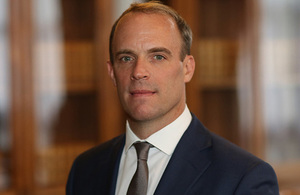Introduction
Today I have published the provisional local government finance settlement for 2020-21.
The proposals set out in this consultation will give local authorities a 4.4% real-terms increase in their Core Spending Power, which will rise from £46.2 billion in 2019-20 to £49.1 billion in 2020-21.
It is a strong and well-balanced package, that delivers significant extra resources to the priority areas of adult and children’s social care, while offering protection to other key service areas.
In October of this year we launched a technical consultation, within which we invited views on the proposed package for 2020-21.
I would like to thank colleagues in local government for their responses to the October consultation and thank them in advance for comments on this next consultation.
I have taken the responses to the technical consultation into account and, following this, I am now publishing our proposals for the provisional local government finance settlement for 2020-21.
We recognise the importance of addressing the challenges in our social care system. This is why we want to build the same level of cross-party consensus on social care as we have with the NHS, to make far-reaching changes to the way these services are financed and delivered.
In the meantime, we will do all we can to support local authorities. The proposals I have published today will allow local authorities to access an additional £1.5 billion for social care.
This comprises £1 billion of additional grant – for both adult and children’s social care – and a proposed 2% council tax precept for adult social care, which will enable councils to access a further £500 million.
£150 million of the additional grant will be used to equalise the distributional impact of the council tax adult social care precept.
These additional resources sit on top of the existing social care package, which will continue at 2019-20 levels, and mean that local authorities will have access to over £5.5 billion of dedicated funding across adult and children’s social care in 2020-21.
Core settlement resources
The provisional settlement also provides protection for vital services by increasing core settlement resources, which includes Revenue Support Grant and business rates baseline funding levels, in line with inflation; and by continuing other key grants from 2019-20.
Council tax
The proposed referendum principles strike a balance between giving local authorities the flexibility to address service pressures, without overburdening council tax payers with excessive increases.
Local authorities will therefore be able to increase council tax in 2020-21 by a core principle of up to 2%, without holding a local referendum. Shire district councils will have a bespoke council tax referendum principle of 2% or £5, whichever is higher.
In addition, councils with adult social care responsibilities will be able to increase their council tax by a further 2%, on top of the core principle, to be spent exclusively on adult social care.
If confirmed, this package will mean that the expected average council tax increase for 2020-21 will be the lowest since 2016-17.
New Homes Bonus
To reward local authorities for house building in their area, I can confirm that we will make a new round of allocations of the New Homes Bonus for 2020-21 amounting to £907 million.
As part of this, I am committing an additional £7 million to maintain the growth baseline for payments at 0.4%.
We will make no legacy payments on these new allocations, but the government will make legacy payments on allocations made in earlier years which are due to be paid in 2020-21.
It is not clear that the New Homes Bonus in its current form is focussed on incentivising homes where they are needed most. I am therefore announcing that the government will consult on the future of the housing incentive in the spring.
This will include moving to a new, more targeted approach that rewards local authorities where they are ambitious in delivering the homes we need, and which is aligned with other measures around planning performance.
Rural Services Delivery Grant
We will continue to recognise the extra costs of delivering services in rural areas and propose to maintain last year’s Rural Services Delivery Grant of £81 million, which is the joint-highest paid to date.
It will be distributed using the same methodology as 2019-20, which allocated funding to the top quartile of local authorities on the ‘super-sparsity’ indicator.
Independent Living Fund and Schools
Following the closure of the Independent Living Fund (ILF) in June 2015, the government agreed to continue funding pre-existing ILF arrangements until the end of 2019-20, through the Former ILF Recipient Grant.
We can confirm that the Former ILF Recipient Grant will continue to be paid to local authorities in 2020-21.
The total value of the grant in 2020-21 will be maintained at the 2019-20 value of £160.6 million, with the same approach to individual local authority allocations. Details will be published shortly.
We recognise that the settlement is just one source of funding that local authorities need to know about. Government has now also confirmed Dedicated Schools Grant allocations for 2020-21.
Conclusion
Local government has asked us for certainty and stability in the settlement for 2020-21.
This provisional settlement delivers on this, building on Spending Round 2019 and our recent technical consultation.
It provides certainty for 2020-21 to those planning vital front-line services and provides significant extra resources where they are needed most.

